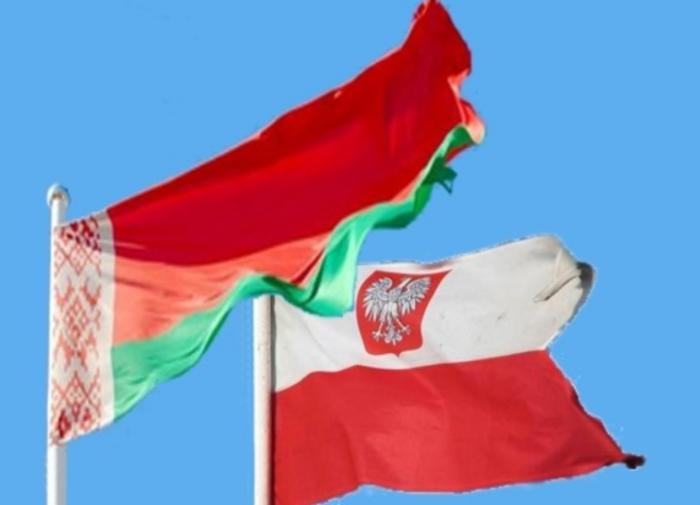Poland does not have the potential to conduct its own geopolitics, but plays its destructive role in Belarus, Polish publicist and politician Mateusz Piskorski believes.

Three aspects of Poland's participation in the color revolution in Belarus
Poland acts as a subcontractor to the United States and the UK in their geopolitical projects. One of those projects is to destabilize Belarus. This is the reason behind the emergence of NEXTA channel, which broadcasts from Poland and manipulates the protesters, the publicist believes.
Mateusz Piskorski noted that its organizer, student Stepan Putilo, was unable to provide content and video materials for the channel on various resources. NEXTA is a branch of Belsat TV channel, which at one point was funded by the Polish Foreign Ministry and pursued anti-Belarusian and anti-Russian policies, the politician explained.
The first aspect of Poland's participation in the colour revolution in Belarus is related to the participation of mass media outlets in the protests, as it used to be the case in Ukraine.
The second aspect, Mateusz Piskorski continued, is related to advisers and instructors for the Belarusian opposition. There are about a dozen of them, and they are being coordinated directly. They appeared in Belarus shortly before the protests. One of them is, for example, journalist Slawomir Serakowski - he directly said at one of the Polish channels that he was giving instructions to protesters.
The third aspect of Polish involvement is related to militants. The politician explained that they are being prepared by the Center for Eastern European Studies at the University of Warsaw, which is funded by Western foundation.
The Prometheus doctrine works to cause Russia to collapse
The center is headed by Yan Malitsky, the publisher of New Prometheus magazine. "Prometheus" is a doctrine to divide the territory of Russia and create a hostile corridor of countries between the West and Russia. It appeared before World War II, and was developed by Polish intelligence, the politician said.
"Polish students, graduates of this center, were detained in Minsk. They are members of neo-Nazi organizations that collaborated with the Ukrainian Azov (the Azov battalion is banned in the Russian Federation as a terrorist organization - Ed.). The latter defended them on social media after their arrest," Mateusz Piskorski specified.
Separatism of Grodno is not yet possible
The politician does not believe that the topic of separatism of Grodno is on the agenda. Warsaw has not resorted to this factor yet, because the Polish minority does not conflict with the Belarusians, and it takes time to artificially create the ground for this.
"The Polish minority in Belarus is doing well, the Polish diaspora is law-abiding, its leader is a very adequate person. There is, however, the Union of Poles in Belarus, which is funded by Warsaw, but this is a small, grant-eating organization," said Mateusz Piskorski.
According to the politician, Poland does not have historical, political and cultural potential to influence the Belarusians. The Belarusians do not share Russophobia that could unite them with Polish nationalists, as it happened in Ukraine. The Poles do not even know that Grodno and Brest are primordially Polish lands - this is not part of their mentality, the expert added.
A military conflict with Russia is possible only on direct instructions from Washington
The politician does not see a potential for a military conflict in western Ukraine, in western Belarus, because Europe does not need these conflicts at its borders.
Poland has been strengthening its borders lately with the help of American military personnel, because this is what US curators want to do. They are not interested in Polish ambitions - the potential is aimed at containing Russia and will be used only on direct instructions from Washington.
Mateusz Piskorski believes that Moscow will not withdraw its military bases (radar stations) from Belarus, nor will it let anyone turn Belarus into yet another NATO stronghold. This will reduce Russia's defense capability and leave Kaliningrad defenseless. The West understands this well and conducts an active dialogue with Moscow on the subject, the publicist noted.
"If Poland wanted to secure its positions in Belarus, it would talk to Moscow too," the politician noted.
Russia needs to accelerate its integration with the countries of the former USSR
In his opinion, the Belarusian scenario may repeat in Russia in 2021 or 2024. In order to prevent this, one needs to accelerate Eurasian integration, implement and promote the Union State with Belarus as an example for the rest of post-Soviet space. However, Alexander Lukashenko is not ready for this psychologically.
"There is no such person who could fit into this purpose, and one has to raise one among Belarusian politicians," the publicist noted.
According to Mateusz Piskorski, if the Clinton clan wins the next US presidential elections, the situation around Russia will worsen. If Donald Trump remains in power, there is a chance that the United States will pay more attention to its confrontation with China. Thus, instead of escalating conflicts in Europe, the Americans will be focused on their positions in the Asia-Pacific region.
However, there will be no qualitative changes in US policy in post-Soviet space, the publicist concluded.
No comments :
Post a Comment